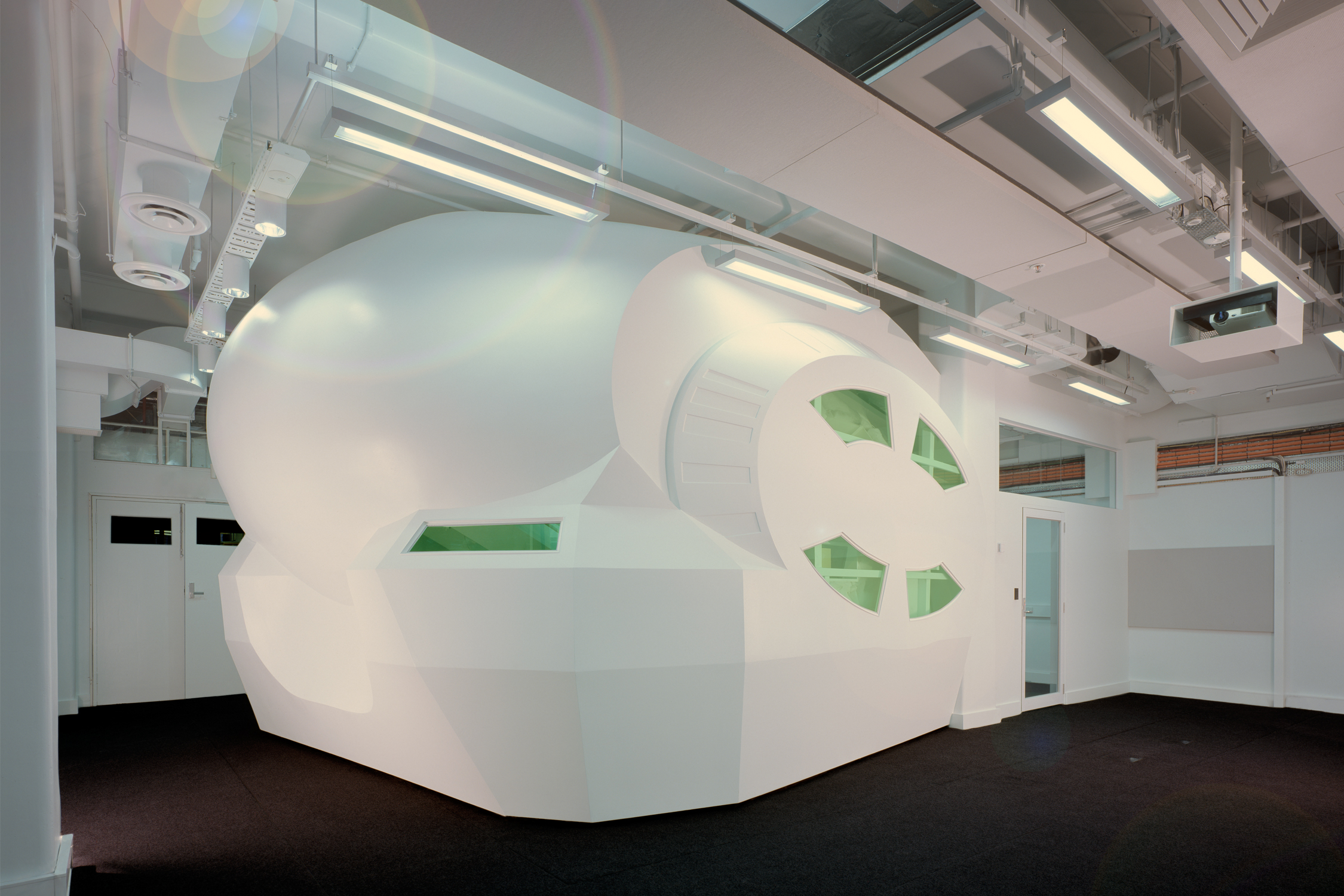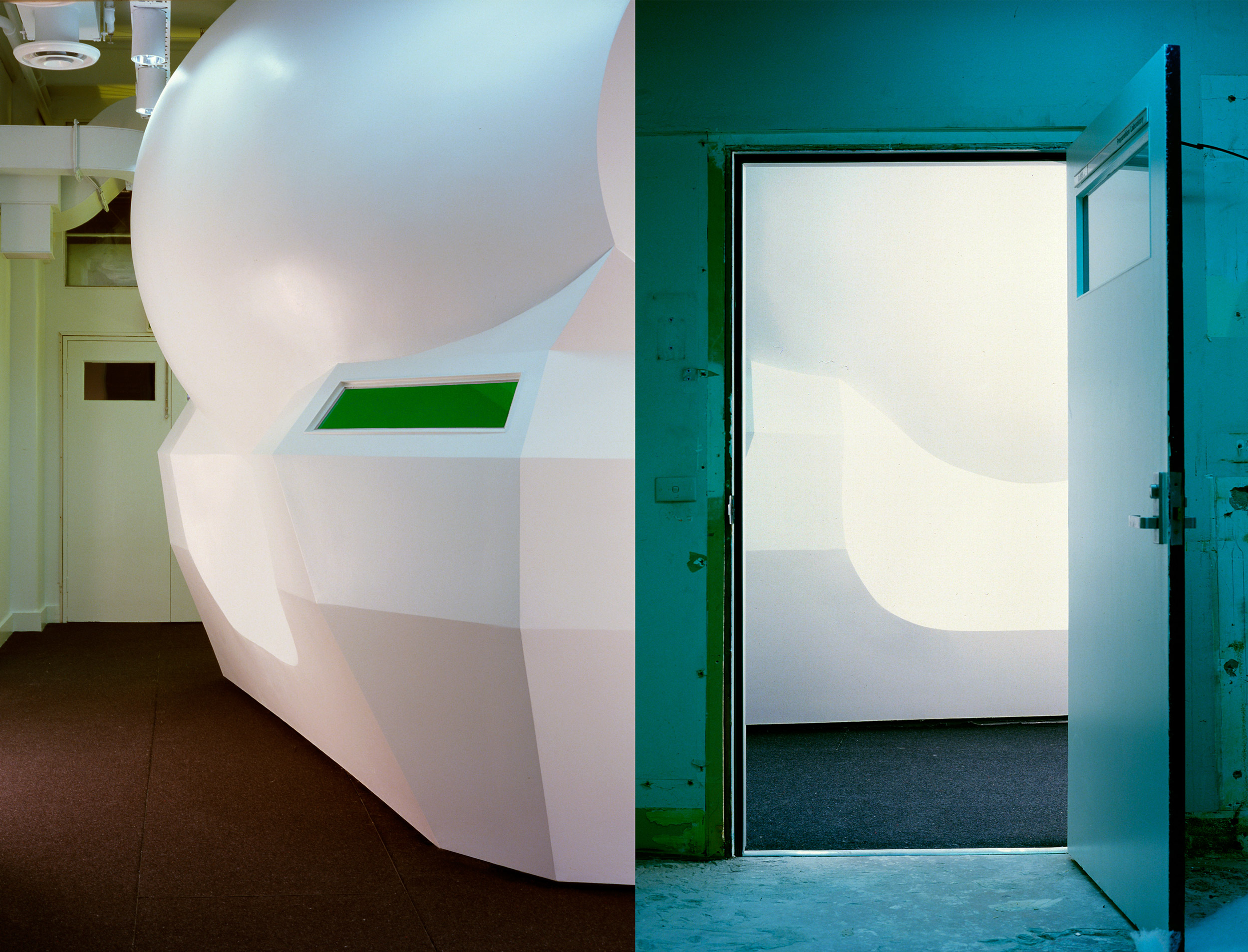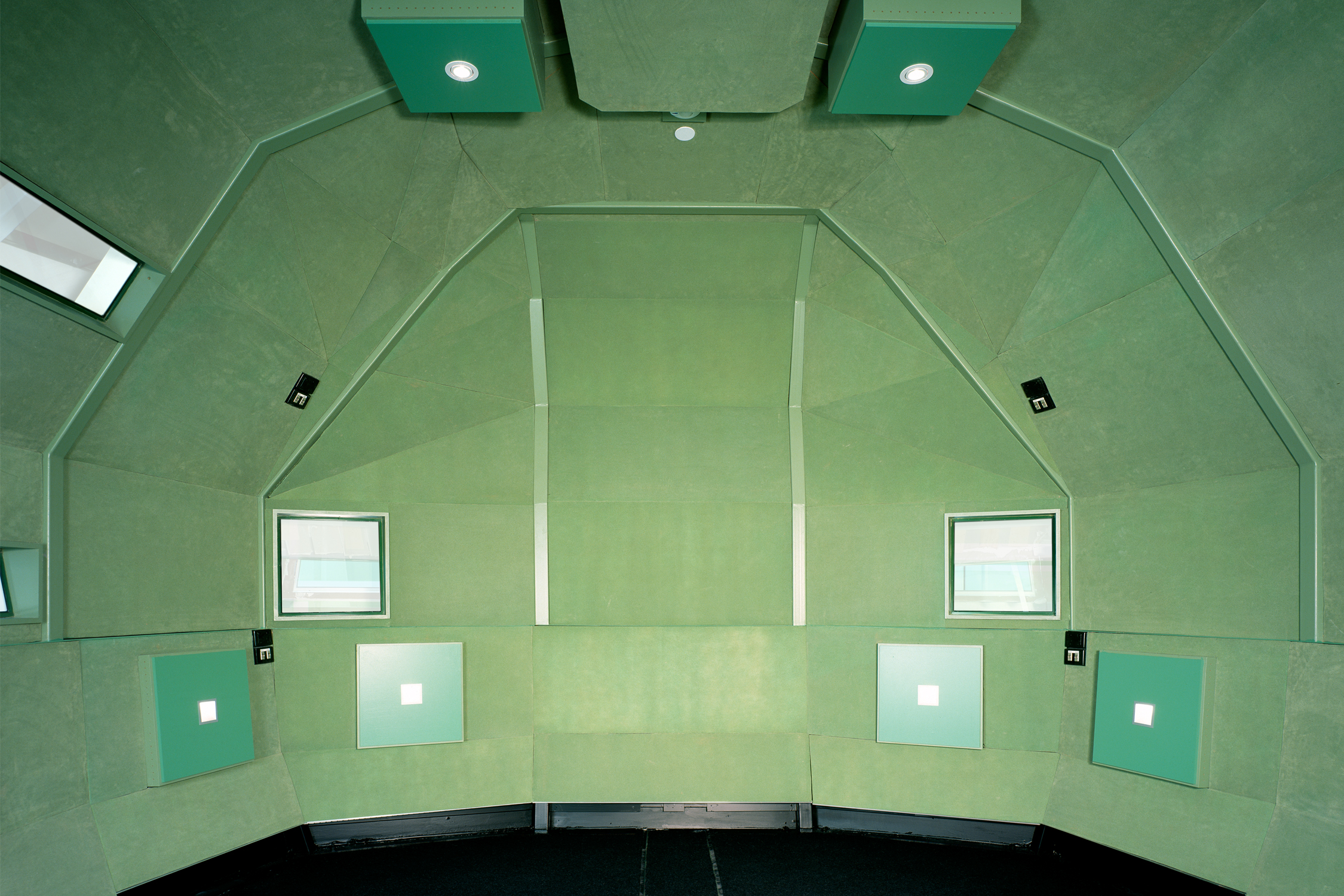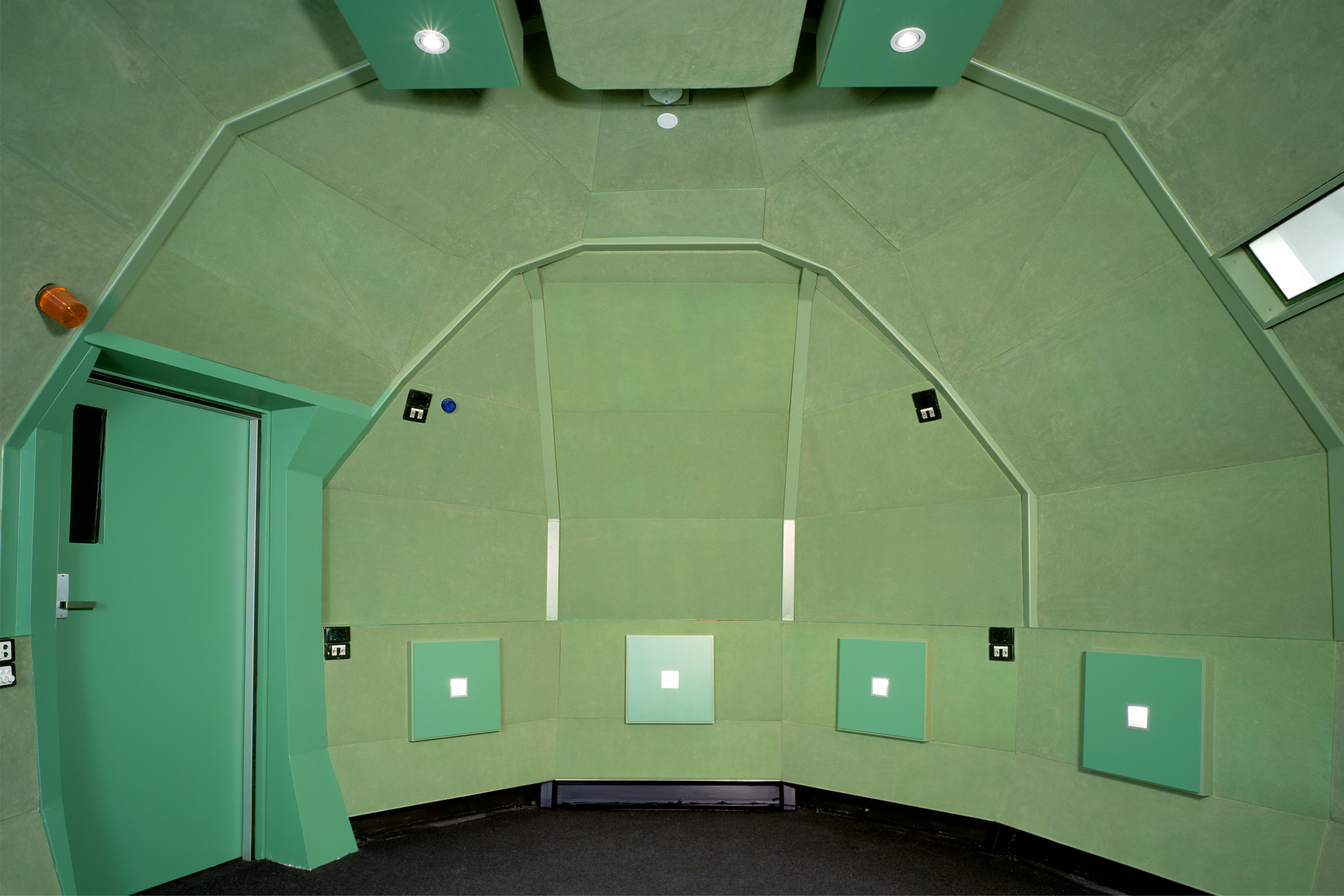Projects
Education Architecture
RMIT University, Spatial Information Architecture Laboratory Sound Studios
The pod from Stanley Kubrick’s 2001: A Space Odyssey takes on a new role as acoustic teaching tool.
Bundoora, Victoria, Australia
In a sequence in Stanley Kubrick’s 2001: A Space Odyssey, a film that introduced several radical innovations in cinematic sound design, an escalation of foreboding events requires the central character’s retreat to a seemingly sound-proof space – a pod. This sequence provides the departure point for the Spatial Information Architecture Laboratory (SIAL) Sound Studios’ three dimensional form. Stretched, abstracted and modified, Kubrick’s pod takes on a new pedagogical role.
The Sound Studios’ users required an immersive space with advanced absorption performance, which could also accommodate multiple speaker configurations for high-end single users, tutor presentations and audiences. To address these requirements, the floor’s concrete slab sits on jack-up neoprene mounts, while two separate steel frames form the pod’s walls, with the internal frame mounted on the floating concrete and the outer frame on the base building slab. The structure between the two skins is exposed to provide a learning experience for students. Entry is via a sound lock.
Internally, the pod is an ellipsoid. The shape has curved, interior focusing wall surfaces, designed to be acoustically ‘dead’ to create an appropriate space for the simulation of different acoustic environments.
“This sound research laboratory for RMIT’s School of Architecture and Design includes a one-of-a-kind sound-proof studio pod, made from a floating concrete seismic slab and double-steel skin.”
—
Andrew Mackenzie, 10X10_3: 100 Architects, 10 Critics (Phaidon, 2011)






